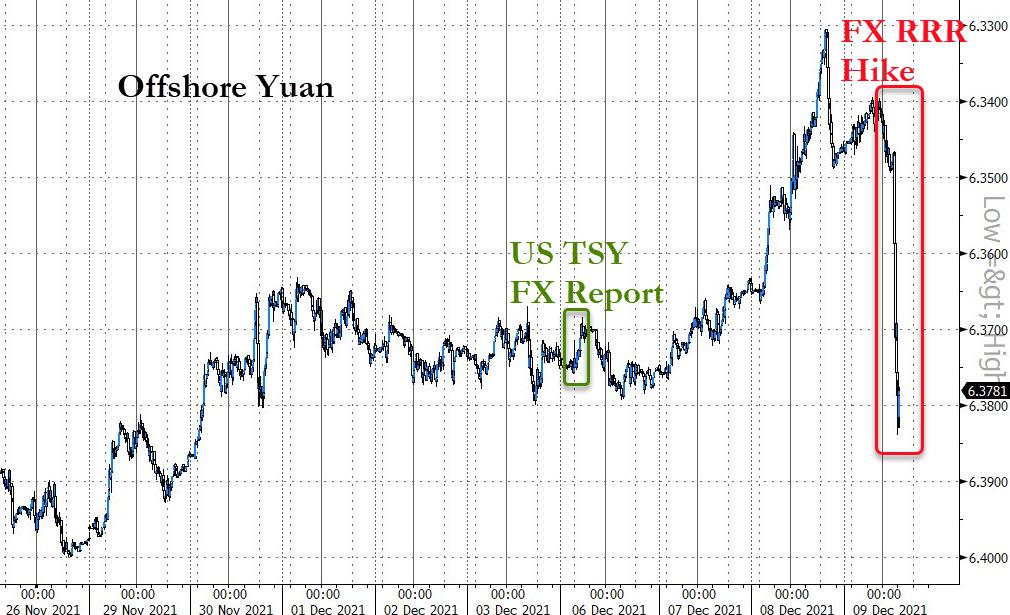This makes it a bit more expensive for Chinese companies (and the government) to make dollar-denominated interest payments (discussed here). but should be manageable if it is a one-off.
If however this marks a reversal of the yuan's strengthening against the dollar it may also mark a decision by the government/Communist Party to let any pain fall first on foreign debt holders which could set loose all sorts of reactions by foreign holders and foreign governments.
I'm not saying there will be a debt repudiation but possibly some sort of action that comes close to that line. If you see the O'Melveny restructuring attorneys saddling up to rep the creditors you'll know it's serious.
From ZeroHedge:
Less than a week after the US Treasury issued a report criticizing China's lack of transparency on the yuan (and its interventions), Beijing has 'intervened' more directly in a move forcing banks to hold more foreign currencies in reserve.
Financial institutions will need to hold 9% of their foreign exchange in reserve from Dec. 15, the central bank said in a statement Thursday evening Beijing time, a 2 percentage point increase.
Bloomberg reports that earlier in the day, the People’s Bank of China had signaled a limit to its tolerance for the recent advances by setting its reference rate at a weaker-than-expected level.
The move, which the PBOC said will help liquidity management, effectively reduces the supply of dollars and other currencies onshore. This implicitly puts pressure on the yuan to weaken and that is what it has done overnight...

The increase is the second rise this year, after the central bank hiked the ratio by 2 percentage points in June, the first increase since 2007....
....MORE
Earlier:"Evergrande, Kaisa cut by Fitch to default after missed payment deadlines"